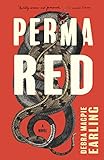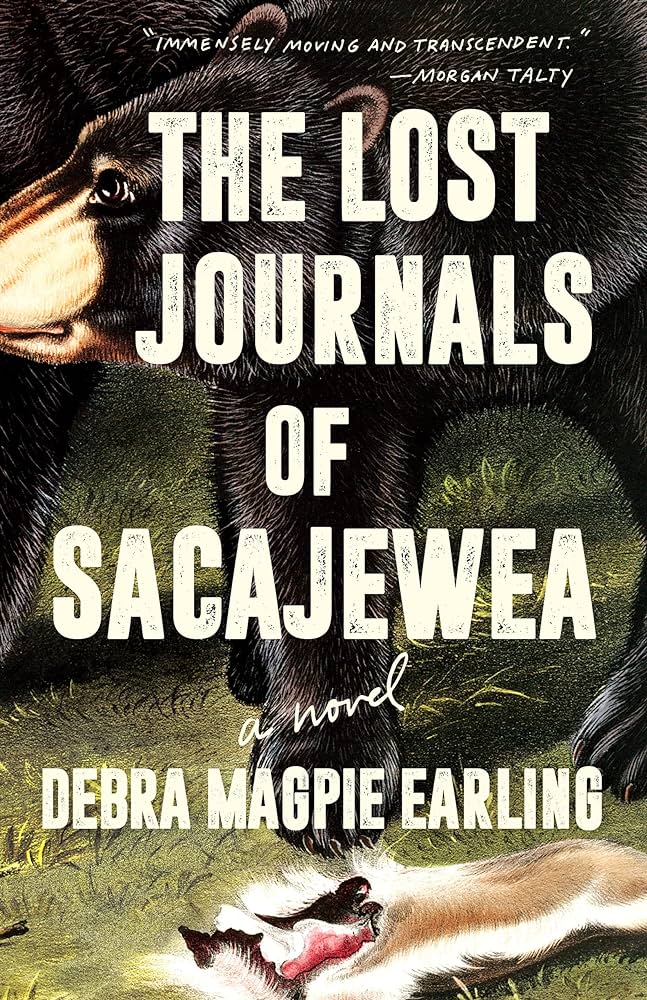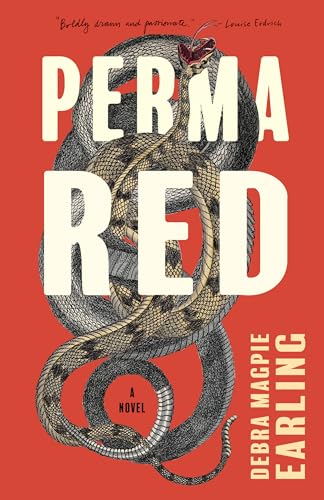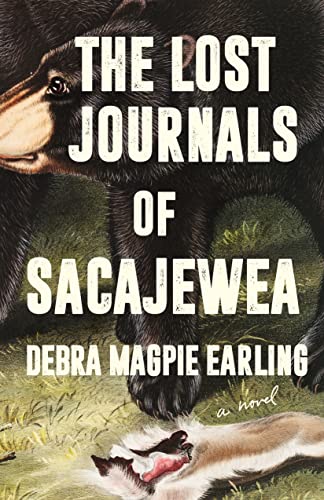 For the past two decades, novelist Debra Magpie Earling has revived the stories of Native women who forge their own paths. In her novels Perma Red (2002) and The Lost Journals of Sacajewea (2023), the heroines search for identities outside of brutality and self-preservation. In poetic prose bristling with compassion and intelligence, Earling invites us into the hearts of her characters, relaying the unique perspectives of Native peoples and untaught histories of the West.
For the past two decades, novelist Debra Magpie Earling has revived the stories of Native women who forge their own paths. In her novels Perma Red (2002) and The Lost Journals of Sacajewea (2023), the heroines search for identities outside of brutality and self-preservation. In poetic prose bristling with compassion and intelligence, Earling invites us into the hearts of her characters, relaying the unique perspectives of Native peoples and untaught histories of the West.
In the bitter chill of a Western winter, I spoke with Earling—who is Bitterroot Salish and a member and citizen of the Confederated Salish & Kootenai Tribes—about the larger context of her work, the need for Native women’s agency, and the responsibility of fiction writers looking toward the past.
Emily Collins: Themes of agency and transformation are present in Perma Red and The Lost Journals of Sacajewea. What inspired or propelled you to embrace large, difficult themes such as agency and transformation in either of your novels?
Debra Magpie Earling: I have always been fascinated with the idea that fictional characters must possess agency in order to be compelling. When I began writing Perma Red, I realized that Native people on reservations were not afforded agency. We have an Indian agency, a building that is, that determines what happens in Indian country. On many reservations, including the Flathead, we have Indian agencies that were established to act as and in many ways replace personal agency. In the 1940s, Indian agents were replaced by school superintendents but they still played an active role in deciding where your children will be sent, how they will be raised, whether they’ll be raised by you. I mean, just all these fundamental questions about what a Native Person can and cannot do.
As an Indigenous woman, Louise, the protagonist of Perma Red, is subjected to the harshest kinds of things such as the boarding school and its real press for assimilation, and so she has to find her own agency within that power dynamic. Readers have told me Louise makes the wrong decisions but what is the right decision when you want to escape oppression but have no resources? I think the idea of agency is really interesting when you think about what a non-Native character’s agency is as opposed to a Native’s.
I’ve thought a lot about Sacajawea’s agency within her culture. Many tribes claim Sacajawea; they have compelling and reasonable claims to her lineage. The thing that I most admired about her was how she’s managed to hold her own particular identity despite limited historical accounts and many people trying to claim her, including feminists.
On their military expedition, Lewis and Clark did not want to hear about indigenous stories, but they did record and collect some accounts. The most amazing to me was Lewis’s mention of how when Sacajewea returned to Three Forks, and saw that the people heading toward her were people she recognized and that she was home again, she could not stop crying. She couldn’t control herself, and it was just so powerful and moving to me. Lewis had said something to the effect of, “She’s never made any show of any kind of emotion, and now she’s just overcome.”
But the thing I loved most was this: The man Sacajewea was betrothed to looked at her and said, “Well, you’ve had a child with a white man so I can’t marry you, I won’t marry you.” This effectively cuts her from her people, the people she had embraced. At this point, she becomes a sovereign woman. She effectively says to Lewis, “I’m going with you.” I thought, here’s a woman who’s expressed true agency and true sovereignty. She cuts herself off from the tribes who’ve claimed her. She claims herself and moves forward. That was just so extraordinary at the time. It’s extraordinary anytime really, but so unheard of then. The idea of a woman’s agency and being her own person has been a powerful draw for me. All my stories have something to do with women who refuse to be pigeonholed or enslaved by men in any way.

EC: What did you learn while developing Sacajewea’s voice in The Lost Journals?
DME: I think that voice rose from an innate sense of injustice we all carry. When you read more deeply into Sacajewea, you find that she was gambled or sold to a man. She was enslaved, but history says she was a wife. I still have to explain this to people in interviews. Someone will bring up the quote that she’s the wife of Charbonneau. That’s so deeply ingrained in us, that if women are sold to men, then they are wives. These women, past and present, are burdened with all these concepts that we don’t put onto men.
When I think about the trauma Sacajewea went through, the whole concept, I now realize I had to imagine what she went through, how she felt. When writing The Lost Journals, I learned I had been blinded to the realities of the expedition and more, blinded to who Sacajewea was as a human being. Until I started imagining. I learned to feel what Sacajewea must have felt. Think about it: You’re a small woman with a baby, and these men all around you are hooting and roaring and you know the kind of salacious attitudes they have toward women. You have to sleep with this man you detest and who considers you his property in a tent you share with all of these other men.
Two hundred years have passed since the expedition, and it’s still taught as a wholesome story, a great testament to the power of the military and the power of men, and, I guess the great conquest. There’s no denying that some of the things these men did were absolutely extraordinary. But today their journey, more specifically Sacajewea’s journey is still taught as wholesome.
EC: What is the writer’s responsibility when looking at the past?
DME: When I think of the term responsibility, I think about responsiveness. When I taught Native American literature, I used to ask my students the question, “Are you responsible for the stories of your ancestors?” Some of them would kind of hesitantly say, “Well, yes.” The stories of our ancestors are built on their actions, and the way we tell stories is through actions. When I think about that idea of response as being responsible for something, to me it means we must respond to the events that have happened in the past in order to understand ourselves and our role as writers.
I believe that writers bring a nuanced and deeper perspective to history, a truth to the things that we otherwise struggle to muddle through. When we have a fiction writer who makes humanity universal, we begin to understand things. Writers have a weighted role but also the chance to lift people’s spirits, to find humor and humanity, to bring joy to people as we tell the stories that help us survive. Each of us sees the world in some way that connects us to each other. Stories can help us see indigenous people as human beings, not just figures on a movie screen or people who’ve been mythologized like Sacajewea. If we can all do that, then that goes a long way towards justice and healing people.
Long after I put my pen down, Sacajewea still astonished me. She deserves a status in America for her extraordinary persistence and vision. But I never thought about that until I sat with her story. In doing so, I feel like I got a visitation from her, the spirit of her. I don’t think she actually came to visit me, but I do think that from our breath we have these spider-like threads of ourselves that go out into the world and live there long after we’re gone. Every once in a while, we’re lucky enough to be in tune with those threads and they catch onto our hair or clothing and we breathe them in. Somehow the stories within us are then reconfigured and retold. If there’s a muse, it is part of all these extraordinary things in life that are still kind of spinning out of the universe.










